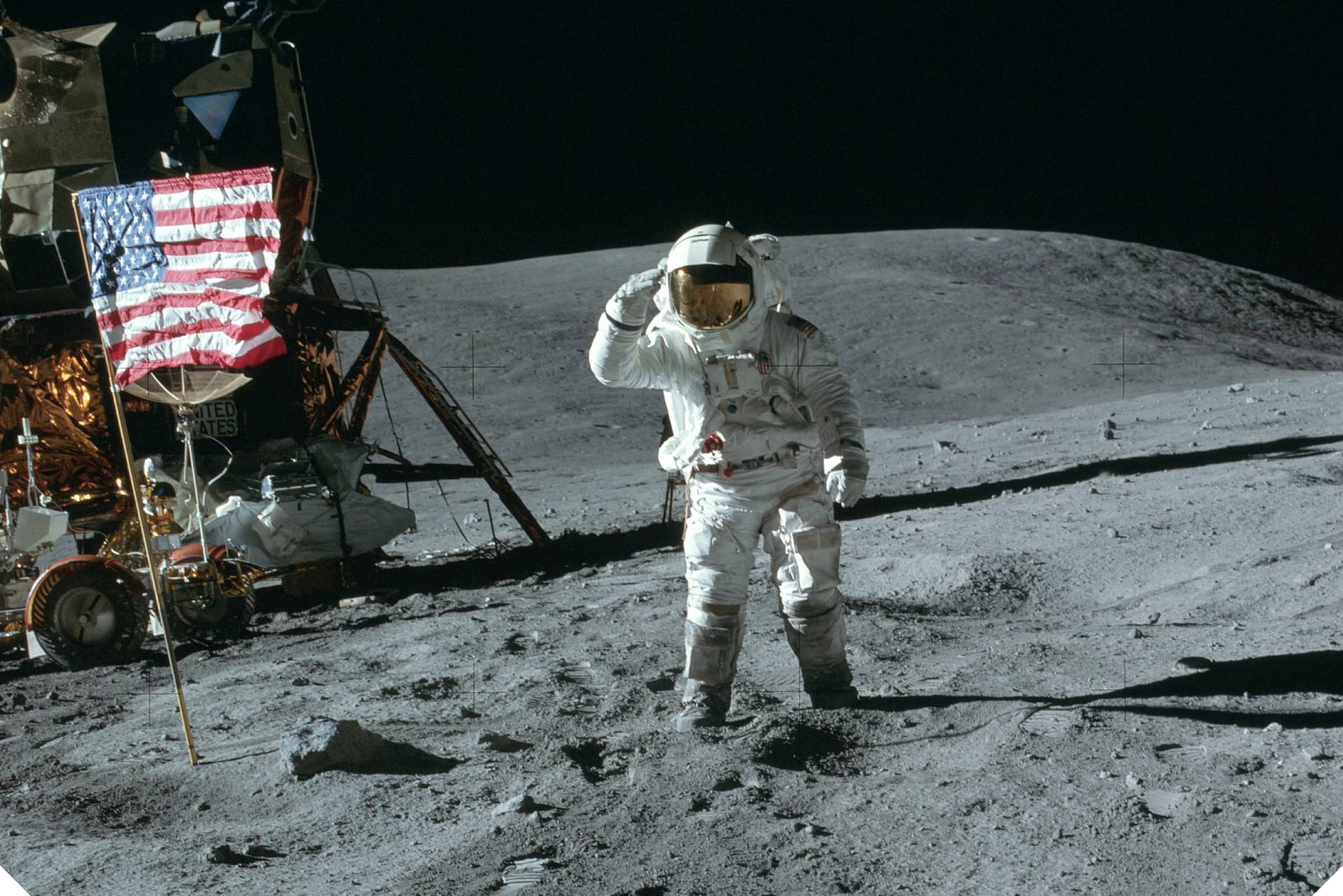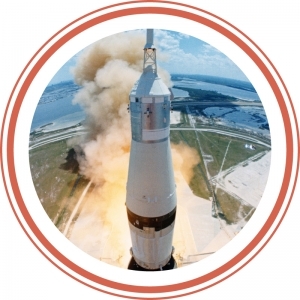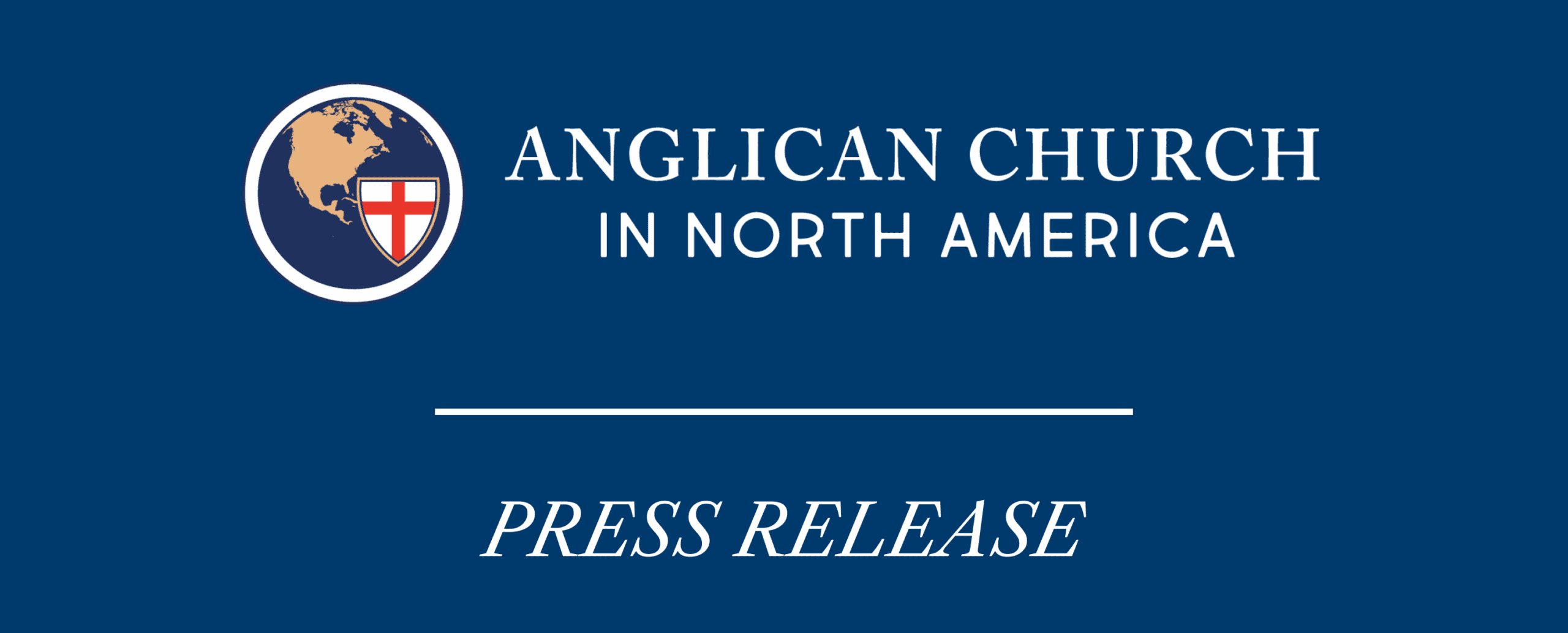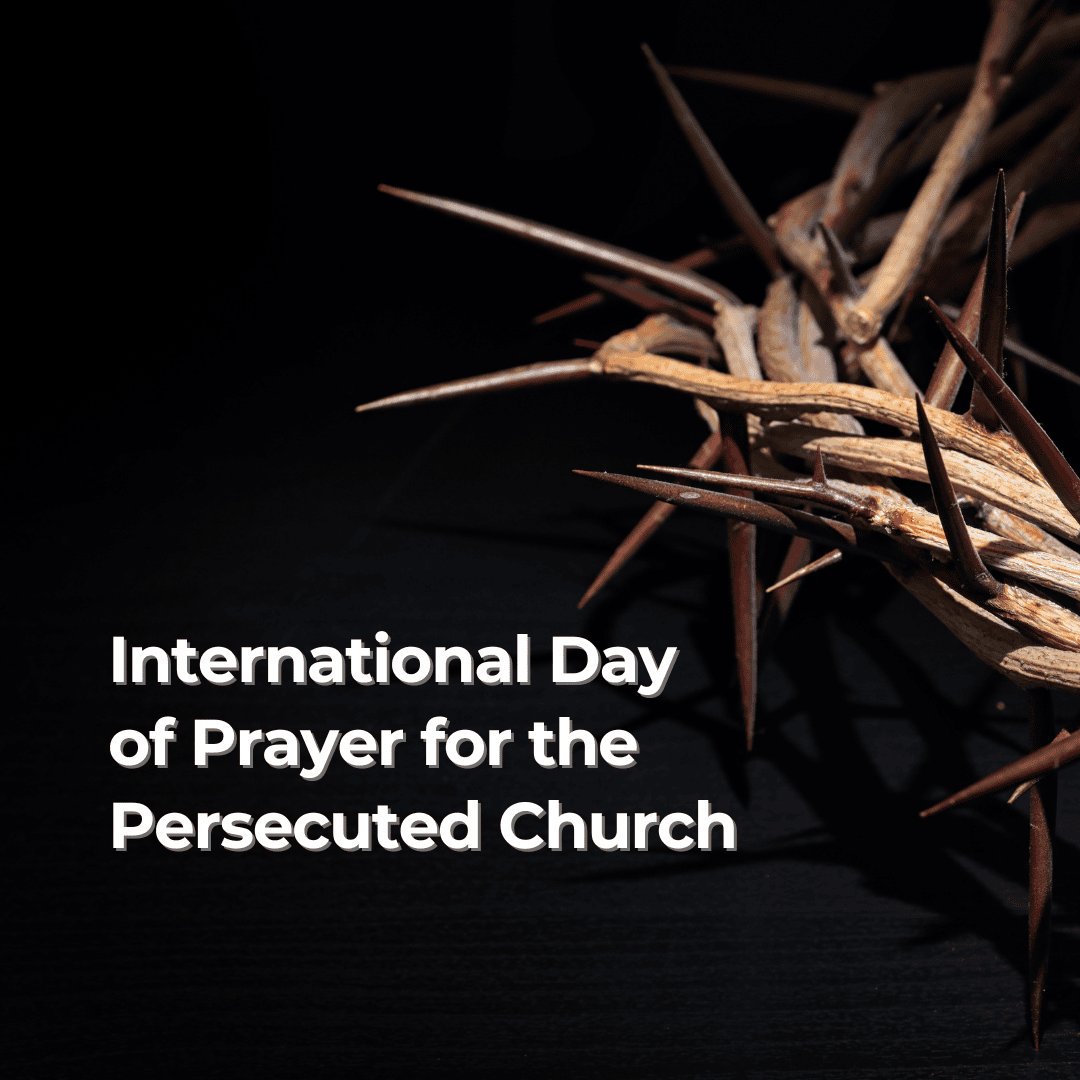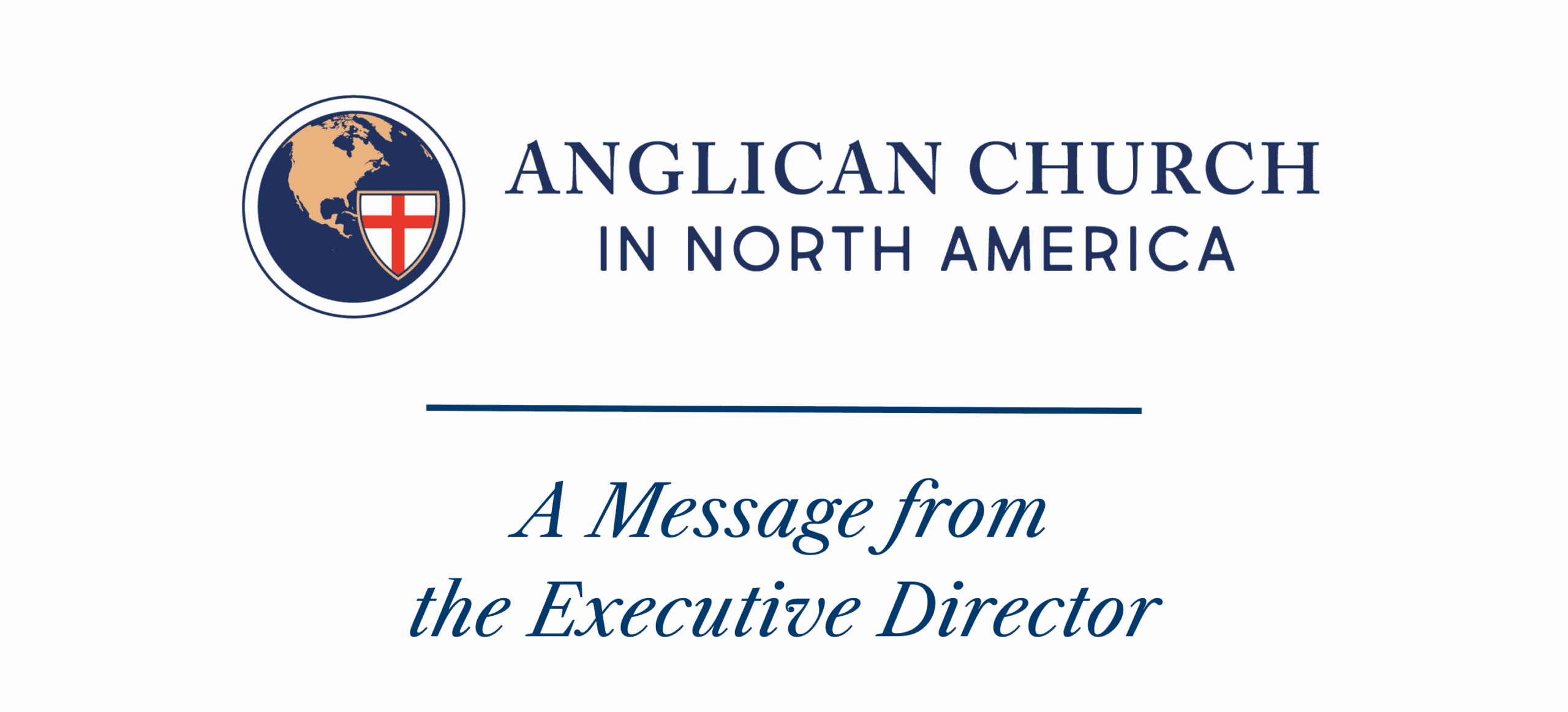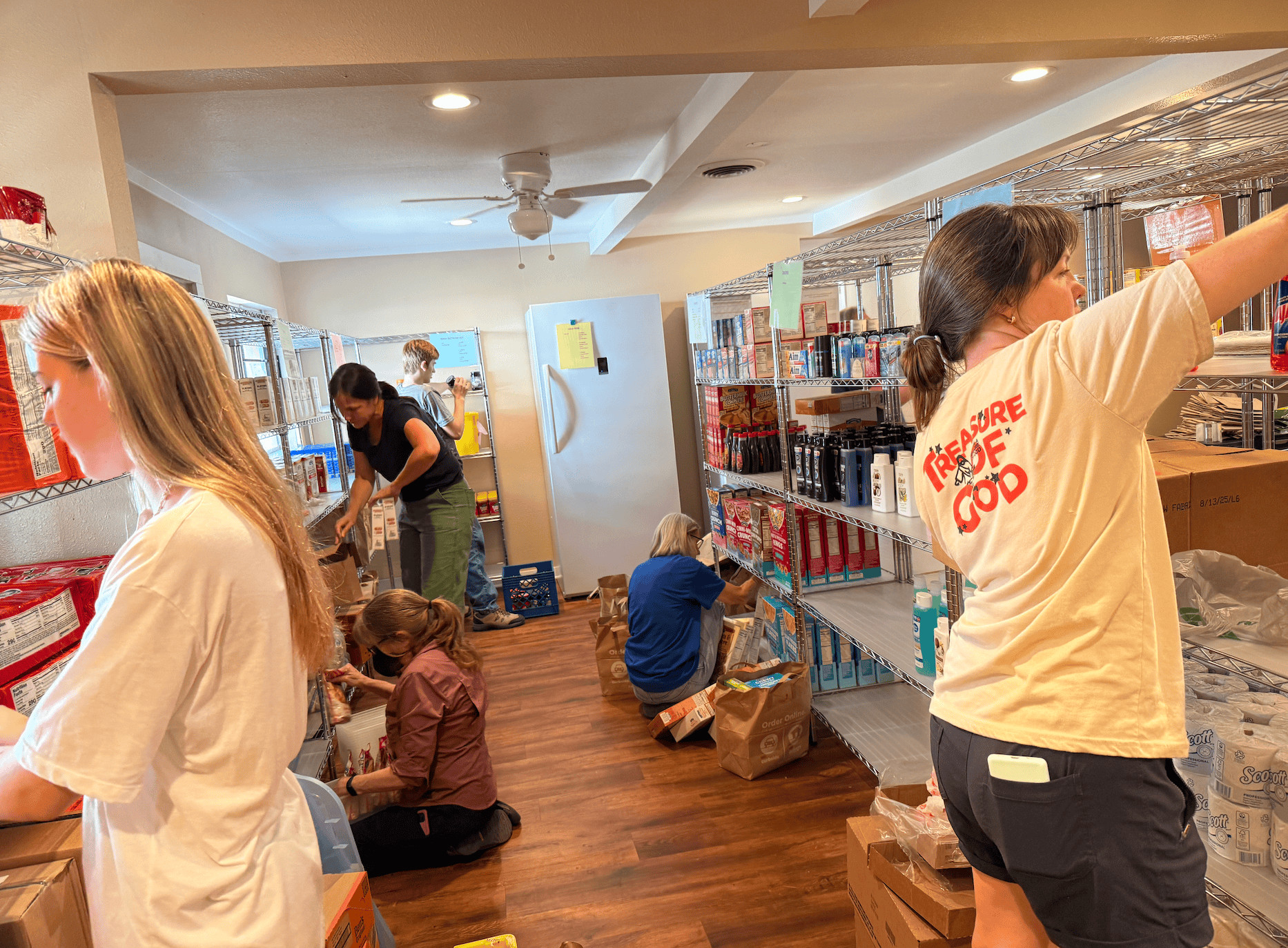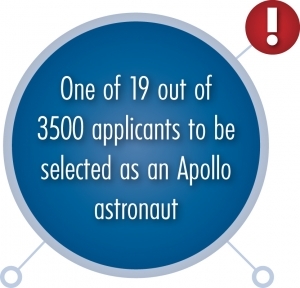
General Charles “Charlie” M. Duke remembers it “vividly, almost every second of descent.”
After becoming a test pilot in the United States Air Force, General Duke became an astronaut in the National Aeronautics and Space Administration’s (NASA) Apollo program. He was capsule communicator, Capcom, during the Apollo 11 landing, designated to be the one voice from earth Neil Armstrong and Buzz Aldrin would hear as they descended to the lunar surface.
“You can imagine the tension in mission control. ‘Are we gonna make it? Are we gonna make it?’” described Duke of the moments before Armstrong and Aldrin landed firmly on the surface of the moon. “I’d been in Mission Control a lot during these critical maneuvers, but I never felt anything like the tension we were experiencing in the final minute of the descent. It got really quiet. Everybody really focused; literally, holding your breath,” he described.
“Very calmly and coolly as you could do, Neil Armstrong said, ‘Houston, Tranquility base here, the Eagle has landed.’ Well, I mean, the tension in the room just evaporated,” Duke said. If you’ve watched the landing, you may have heard Duke’s voice even if you don’t know his name. “I was so excited I couldn’t even pronounce tranquility. It came out ‘twang’ at first. I said, ‘Roger, twang- Tranquility, we copy you on the ground. You got a bunch of guys about to turn blue. We’re breathing again. Thanks a lot,’” said Duke, replaying what he said as Capcom to Armstrong and Aldrin after the tense and historic landing.
Duke would go on to have his own bit of historic fame. On the backup crew of Apollo 13, Duke played a crucial role in getting the astronauts home after an oxygen tank exploded. He spent 35 hours straight at Mission Control after the accident, working with the rest of the team to figure out the procedure for getting the crew back to earth safely. Again, Duke served as Capcom, relaying the procedures to astronauts Jim Lovell, Jack Swigert, and Fred Haise. While not a main character portrayed in the 1995 blockbuster film, Apollo 13, featuring Tom Hanks, Duke is mentioned when Ken Mattingly is told he would not fly due to not having had the measles and having been inadvertently exposed to the illness by Duke.
Two years later, Duke really made a name for himself when he became the 10th and youngest person ever to walk on the moon. He was the Lunar Module Pilot on Apollo 16 at age 36.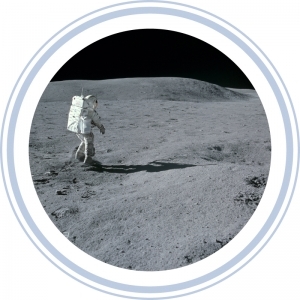
Duke’s wife, Dorothy (“Dotty”), said, “That’s what you wanted more than anything; you wanted your husband to fly. You were there for him to fly. I was just tickled to death for him,” she went on to say of the moment he found out he would be going to the moon.
“Being on the moon was a thrilling adventure. It wasn’t scary. It wasn’t foreboding; you didn’t feel a sense of evil at all. It was just wonder. This beautiful landscape, the most lifeless surface you could possibly visit. It was shades of gray with rocks and craters all over it. A spectacularly clear view because there’s no atmosphere. You could see all the way clearly to the horizon,” described Duke, staring off as he pictured it in his memory.
He walked on the moon. One of 12, ever. A name in history books. A man who has seen earth from space and met presidents and been interviewed by George Clooney.
But walk into Christ Our King Anglican Church in New Braunfels, Texas on any Sunday morning they are home, and you will see the quintessential “cute old couple” you want to be when you are 80 years old, in the front row, listening intently or standing with arms raised praising the Lord. Talk with them after the service and you’re most likely to hear about their family, growing up in the South – Charlie is from South Carolina and Dotty from Georgia, or their most recent trip, not hearing about the moon unless you ask. They exude humility and grace, love and compassion, fervent devotion to the Lord and his people. For a man who has walked on the moon, he sure is “down to earth,” as they say. Hang around them a bit and you’ll be inspired in faith and at rest in the peace that the Lord presents through them.
It wasn’t always that way, though.
Charles Duke took country music to the moon. Randy Rogers and Robert Earl Keen wrote and sang a popular Texas-country song about it.
https://www.youtube.com/watch?v=eK3vUm6wYR4
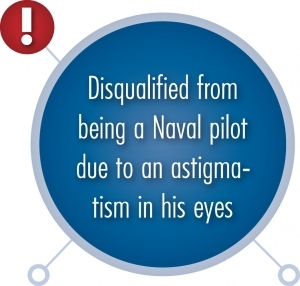 “On our flight, I didn’t have a personal experience of being close to God or the wonder of creation or anything like that, nor did John that I know about,” says Charlie of his lack of spirituality – and that of Apollo 16 commander, John Young – during his flight to the moon. “At that time, we were in church, but not really committed to the Lord. I didn’t have a spiritual experience.”
“On our flight, I didn’t have a personal experience of being close to God or the wonder of creation or anything like that, nor did John that I know about,” says Charlie of his lack of spirituality – and that of Apollo 16 commander, John Young – during his flight to the moon. “At that time, we were in church, but not really committed to the Lord. I didn’t have a spiritual experience.”
Charlie continued about the perspective he and Dotty had in the early days of their marriage: “It was just church. Everybody went to church, at least the way we grew up,” he said of their regular church attendance that still left them without the Lord.
Dotty grew up Episcopalian, the granddaughter of a priest and the niece of a bishop. Charlie grew up a Baptist but was confirmed in the Episcopal Church after they were married.
“The problem really was that we were taught, I was taught anyway, that when I was baptized as a baby I’m a Christian so my whole focus had been doing the right thing, being a good person. I knew a lot of the Scriptures from Sunday School and everything, but we were never taught to know God. And I didn’t know God,” Dotty shares of her childhood and young adult years leading her to become an agnostic despite attending church.
Eventually, their brokenness revealed itself in their marriage and, consequently, Dotty’s emotional and mental health.
“When we got married, it was like Charlie had checked that off his list. ‘I’m married now so now I can focus on what I really want to focus on,’” she describes of even their early days of life together. “After a really good courtship, I felt left out, and so, for the next number of years, as we moved, I kept trying to get him to love me the way I wanted to be loved.”
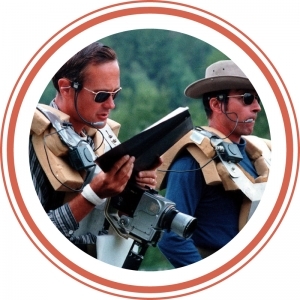 Dotty had made efforts to be involved in Charlie’s life and the excitement of his astronaut work. She took college classes in geology at a local community college and traveled with him to Hawaii during a geological training exercise. “I wanted to be a part of it,” she said.
Dotty had made efforts to be involved in Charlie’s life and the excitement of his astronaut work. She took college classes in geology at a local community college and traveled with him to Hawaii during a geological training exercise. “I wanted to be a part of it,” she said.
Still, she wasn’t getting the love she wanted and needed from her husband. Perhaps, though, once he met his goal, the climactic experience of walking on the moon, he would finally focus on the family and they could live out their fairytale.
“After the flight, I was hoping Charlie would focus on our relationship then, but he was still very focused on his job, his career.
“So, I started looking for the answer to life. I was just trying to figure out, what is the purpose in life? You know, are we just here by accident? What’s going to make me happy? I tried numbers of different things, careers and different things like that, to try to find the answer to life, and all of them failed because they didn’t bring me the love and big purpose in life.” Dotty participated in a lot of volunteer work, including at church, but knew that something was still missing. Consequently, she fell into depression and began having serious suicidal thoughts during her mid-thirties.
“Well, we are born, and we die. Life is a struggle for me, it’s lonely, so why not put an end to it?” she reasoned.
Providentially, though, their church hosted a Faith Alive weekend she was expected to attend as a vestry member.
Charlie and John Young won an award for taking the “Spirit of the Olympics” to the moon.
https://www.youtube.com/watch?v=E7JkbU_pdm0
“For the first time in my life, I heard people give a testimony of how they came to know God and that Jesus was who he said he was. It was the very first time in my life and I had been in church all my life,” she says with disbelief and indignation at the reality. “I had never heard somebody say, ‘Jesus is God and look what he did in my life.’ And these were not big things, these were little things like ‘he answered my prayers.’ I thought, really? He answers prayers?”
With emotion, she described the thoughts that followed: “I thought, well, I’ve tried everything else to find the answer to life, but I haven’t tried Jesus.” To Dotty, this was the last option. If God was not really there, then that would be the end. As she said, “it was time to find out if it was true or not.”
So, she told Jesus if he was real, she’d give her life to him. She began to pray “simple little prayers.” She figured, if God would answer the prayers of those she had heard, he would answer her prayers too. As God does, he began answering her. Admittedly, though, “it took a while because I was skeptical,” she says of the breakdown from believing it was just luck or coincidences to believing, “wow, he is real! God is real, and he loves me! My heavens, He loves me so much that he listens to me; and he loves me so much that he wants to actually intervene in my life! He wants to help me in my life!”
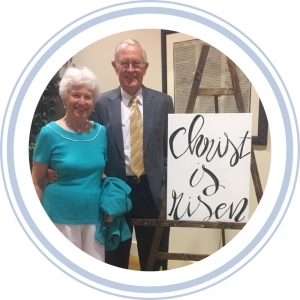 This new revelation went further, though. “I would think, even though Charlie doesn’t love me, he’s just a human being, but God loves me! And whenever I would be hurt that he wasn’t loving me the way I wanted to be loved, then God would remind me, ‘remember, I love you more than you can even use. I love you so much.’”
This new revelation went further, though. “I would think, even though Charlie doesn’t love me, he’s just a human being, but God loves me! And whenever I would be hurt that he wasn’t loving me the way I wanted to be loved, then God would remind me, ‘remember, I love you more than you can even use. I love you so much.’”
It would be another few years before Charlie would come to know Jesus. In the meantime, Dotty set out to love Charlie as God would have her love him, regardless of Charlie’s actions, and it started with forgiveness. “[The Lord] said I have to forgive Charlie. If I want to have a born-again marriage, I must forgive Charlie.” And much of the next few years would involve this effort with the Lord.
Charlie, after leaving NASA, became a business owner in the beer distribution industry. They left Houston and moved to New Braunfels, a small German town between Austin and San Antonio in the heart of Texas. The money was good, but frustration was high.
Charlie had no peace.
Finally, after leaving a weekend-long Bible study for couples, Charlie realized, “This is true or it’s the biggest lie ever perpetrated on humanity,” and the Lord convicted him that he needed to make up his mind. Sitting in their car, now in his early 40s, Charlie gave his life to Christ.
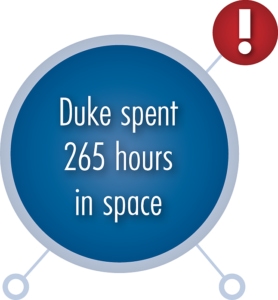 “Walking on the moon was a great experience. I’d do it again. But it doesn’t leave you with peace. Money doesn’t give you peace. I just had no peace in my life. But when I said, ‘Jesus, come into my life,’ it was almost instant, and I experienced the peace of God. You just know that you know that you know you made the right decision.”
“Walking on the moon was a great experience. I’d do it again. But it doesn’t leave you with peace. Money doesn’t give you peace. I just had no peace in my life. But when I said, ‘Jesus, come into my life,’ it was almost instant, and I experienced the peace of God. You just know that you know that you know you made the right decision.”
The next day, Charlie began digging into the Scriptures. The Lord, he says, gave him “an insatiable desire” to learn the Word. Shockingly, it was new for Dotty who says she didn’t begin reading the Bible until Charlie became a believer: “I didn’t trust the Bible. I didn’t start reading the Bible until Charlie came to the Lord.”
Over time, through forgiveness and godly love, their marriage healed and Charlie’s relationship with their two sons improved. They experienced changed lives and changed relationships.
It wasn’t too long after that the Lord would begin to lead them into a new adventure, one that was born out of Charlie’s platform but would be purposed for God’s glory. After invitations for speaking engagements began, the Dukes formed Duke Ministry for Christ.
Today, in their 80s, the Dukes fly around the world to speak at conferences, churches, and other various events, using every opportunity to share their testimony and asking the Lord to provide those opportunities, even at space-oriented conventions.
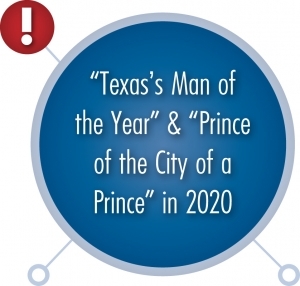
“We get invitations all over the world, some for space-related events and others for faith-based events, but at all of them, we try to find a way to witness for Jesus,” Charlie says.
Dotty adds, “my prayer is always, Lord, fill me with your spirit. Shine through me. Be a light to draw people. And he seems to honor that. Anymore, it’s not going to look for people, he just brings them. It’s having the mindset that I’m an ambassador for Christ. Okay, Lord, here I am, use me. It’s being willing to be open and talk your language, talk your love for Jesus however it comes up in conversation. It’s amazing how in conversation it just turns to Jesus.”
As the Dukes are set on winning souls for Jesus around the globe, they remain grateful for the support, ministry, and faithfulness of the global movement of orthodox Anglicans. “Gafcon, you can see, is an international movement that’s uniting all the Anglican churches in the US and around the world, and it’s exciting to see how it’s growing,” Charlie expressed.
In the end, the Dukes’ lives and ministries can be summarized with one of Charlie’s favorite lines, “walking on the moon was great, but the even better walk is walking with Jesus, and we can all do that.”
 To hear more from the interview with the Dukes, listen to their two-part episode on the Things Anglican podcast. Catch all the fun stories of the Apollo missions and the Dukes’ years at NASA in Part I then check out Part II of the episode for more on their testimonies.
To hear more from the interview with the Dukes, listen to their two-part episode on the Things Anglican podcast. Catch all the fun stories of the Apollo missions and the Dukes’ years at NASA in Part I then check out Part II of the episode for more on their testimonies.
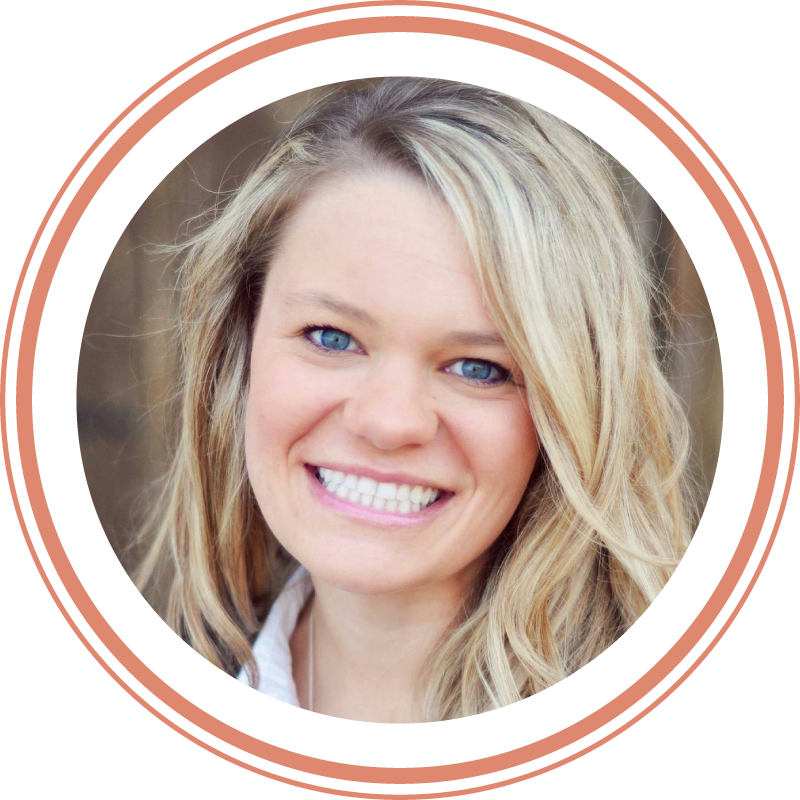
ABOUT THE AUTHOR RACHEL THEBEAU
Rachel is the Deputy Communications Director for the Anglican Church in North America and, in that role, Managing Editor of The Apostle Magazine. She works remotely from New Braunfels, Texas where she is a member and leader at Christ Our King Anglican Church.
Photo credits:
Charlie salutes the American flag on the moon. Photo: NASA, scanned by NASA Johnson and processed by Kipp Teague
Lift-off of Apollo 16 on April 16, 1972. Photo: NASA, scan by J.L.Pickering.
Charlie and his footprints on the moon. Photo: NASA, scanned by NASA Johnson and processed by Kipp Teague
Charlie and Apollo 16 Commander John Young during a geology training exercise, July 1971. Photo: NASA, scan by J.L. Pickering.
Apollo 16 crew poses with Lunar Module, 22 March 1972. Photo: NASA, scan by J.L. Pickering.
Charlie teaches about the mission. Photo: NASA, scan by Frederic Artner.
A photo of the family picture Charlie left on the moon. This spot is known as Cat Crater – “Cat” is an acronym for “Charles and Tom,” the Dukes’ sons. Photo: NASA, scanned by NASA Johnson and processed by Kipp Teague
Charlie leads Dotty and their two sons on a tour. Photo: NASA, scan by J.L. Pickering.
Charlie’s formal Apollo 16 portrait. Photo: NASA, scan by Kipp Teague.
Charlie with a T-38, likely taken at Patrick Air Force Base. Photo: NASA, scan by Ed Hengeveld.
Apollo 16 crew in the recovery raft after splashdown. Photo: NASA, scan by J.L. Pickering.
Apollo 16 returns to earth. Photo: NASA, scan by Kipp Teague.
U.S. welcomes the Apollo 16 crew aboard the recovery carrier, U.S.S. Ticonderoga. Photo: NASA, scan by Frederic Artner / Didier Capdevila.
Charlie’s footprints on the moon. Photo: NASA, scanned by NASA Johnson and processed by Kipp Teague

